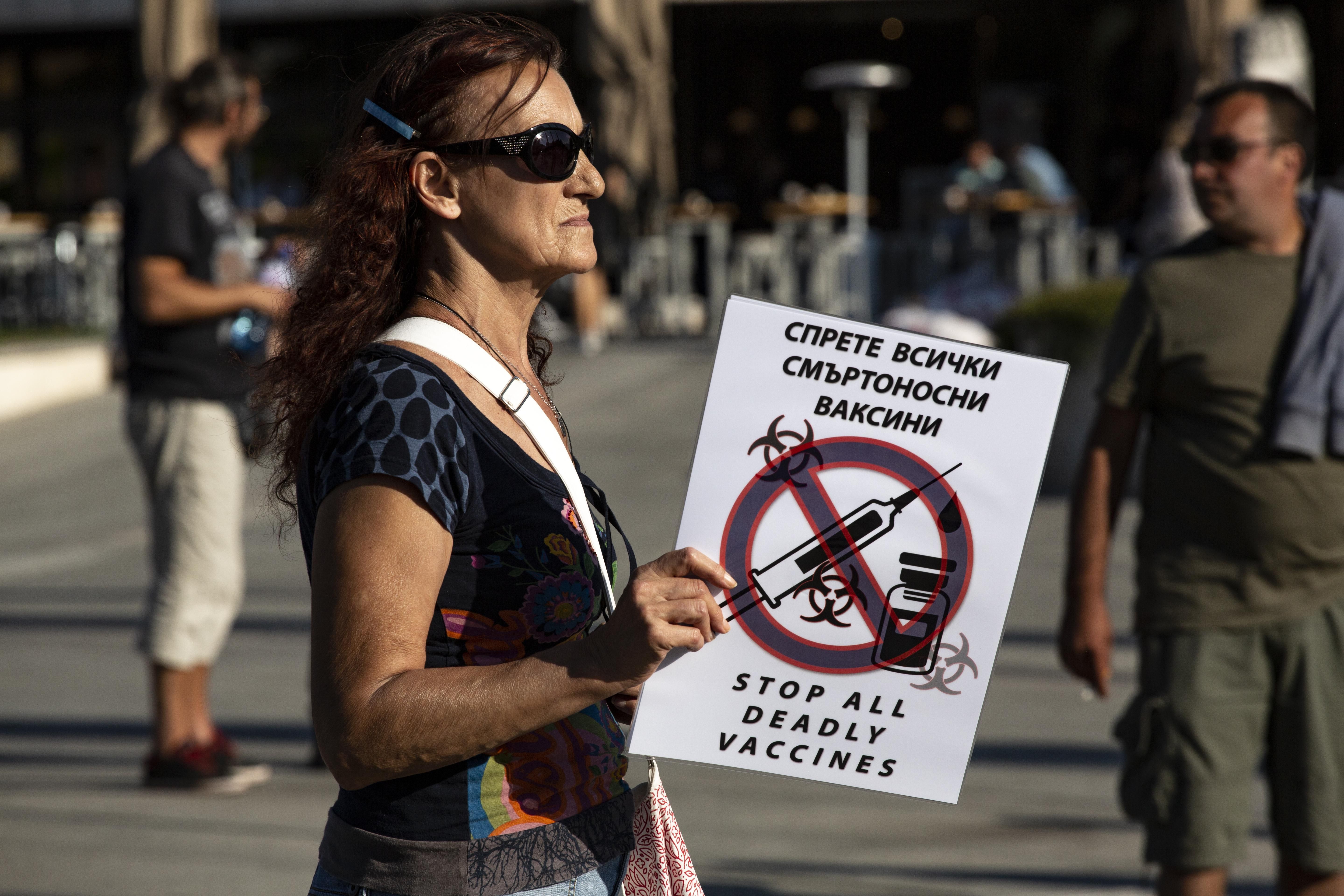Right now, only one region of the world is reporting an increase in new daily COVID cases. Here's a hint: it's one of the places where vaccines are, for the most part, easiest to get.
It's Europe. According to the World Health Organization, the region last week notched a 7 percent uptick in new daily infections, the third week in a row that infections rose there.
Much of that comes from Central and Eastern Europe, which is currently mired in its worst COVID outbreak to date. Home to just four percent of the world's population, the former Eastern Bloc is now racking up 20 percent of all new cases each day.
Russia, Ukraine and Bulgaria have in the past three days all reported their highest daily numbers of infections and deaths since the start of the pandemic.
Romania, where funeral parlors are now running out of coffins, leads the world with 22 daily COVID deaths per million people, followed closely by neighboring Bulgaria and eleven other Eastern European countries in a row.
Governments in the region, once hailed for their early action to "flatten the curve," are yet again imposing fresh restrictions on businesses, schools, and entertainment venues. Latvia recently went back to an almost full lockdown. Russia has ordered most businesses and schools to close for a full week beginning October 30, with some regions of the country starting already.
Part of the story is that vaccination rates throughout the region are still low. While three-quarters of all EU adults are fully vaccinated, those numbers fall off a cliff as you move eastward. In Romania it's barely 36 percent, while Bulgaria's mark is still below 25 percent. In Russia, which developed one of the earliest COVID vaccines, Sputnik V, just 32 percent of the population has been fully immunized. In Ukraine, it's 16 percent.
And it's not because there aren't enough jabs in stock. Despite early hiccups with securing vaccines, the EU now has more than it needs. Russia now makes its own supply in large quantities. Ukraine is a partial exception here, as the country's fractious politics have hampered its ability to buy and distribute shots.
But the region's problem isn't supply, it's demand — or, more specifically, it's vaccine hesitancy.
EU surveys find that rates of vaccine hesitancy are much higher in Eastern Europe. A recent EU poll found that just 31 percent of Bulgarians were keen to get the shot, and fewer than half of Slovaks, Croatians, and Latvians were with them. Other countries like Romania are in the 50s, but that's far off the overall EU mark of 59 percent, or the Western European countries which are almost all above 70. Surveyed separately, Russia had one of the highest rates of vaccine skepticism in the world, as does Ukraine.
Why is this happening? Not coincidentally, public trust in government is also markedly lower in Eastern Europe, where democracies are in general younger and less well established, than in Western Europe.
It's hard to draw a direct link between trust in government and willingness to take a vaccine — but in countries where people generally don't believe what their governments tell them, it's harder for those governments to convince people that vaccines are safe and important.
Moreover, political turmoil in some of the worst-hit places isn't helping: Romania's government collapsed after a no-confidence vote earlier this month, and Bulgaria is heading next month into its third election of the year, in a vote where new coronavirus restrictions are shaping up to be a salient issue.
Upshot: Unlike in earlier waves of the pandemic, most of Eastern Europe has the tools to grapple more successfully with COVID-19. But political bickering, weak trust in government, and high skepticism about the jabs are proving to be an endemic condition of their own.
More For You
100 million: The number of people expected to watch the Super Bowl halftime performance with Bad Bunny, the Puerto Rican superstar and newly minted Album of the Year winner at the Grammys.
Most Popular
Think you know what's going on around the world? Here's your chance to prove it.
An imminent US airstrike on iran is not only possible, it's probable.
Americans are moving less — and renting more. Cooling migration and rising vacancy rates, especially across the Sunbelt, have flattened rent growth and given renters new leverage. For many lower-income households, that relief is beginning to show up in discretionary spending. Explore what's changing in US housing by subscribing to Bank of America Institute.
